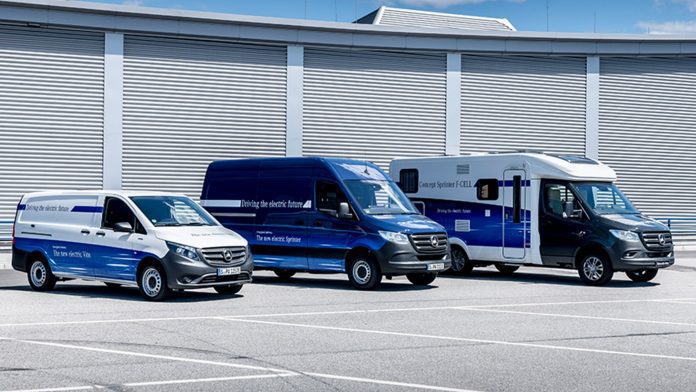On December 12, Rivian issued a statement announcing that it was postponing its intentions to produce electric commercial vans in Europe and that it would no longer be pursuing its arrangement with Mercedes-Benz.
On September 8, 2022, the two businesses announced that they would produce two different EV vans, one for each manufacturer, on the same assembly line. By combining investments, technology, and suppliers, the concept was developed to save expenses for both businesses.
RJ Scaringe, CEO of Rivian, noted that the business sought “the best risk-adjusted returns” on its capital investments. In order to increase value for Rivian, he continued, “At this moment, we feel that focusing on our consumer business as well as our existing commercial business represents the most appealing near-term opportunities.”
The U.S.-based electric vehicles manufacturer stated that “at a more suitable time for Rivian,” it is still open to exploring potential future collaboration with Mercedes-Benz. According to Mercedes-Benz, Rivian’s choice will not affect the electrification strategy’s schedule or the anticipated ramp-up of its new electric vehicle manufacturing facility in Jawor, Poland.
The CEO of Mercedes-Benz Vans, Mathias Geisen, said: “Exploring strategic opportunities with the team at Rivian in the future remains an option.”
The Inflation Reduction Act (IRA) “represents a historic $369 billion investment in the modernization of the American energy system,” according to the Department of Energy. The IRA includes a tax credit, among other things, for EVs that have their final assembly in North America; in the next years, this could pose a significant threat to European automakers.
Did you enjoy this article? Please share your thoughts, comments, or questions regarding this topic by connecting with us at newsroom@cbtnews.com.
Be sure to follow us on Facebook, LinkedIn, and TikTok to stay up to date.
While you’re here, don’t forget to subscribe to our email newsletter for all the latest auto industry news from CBT News.





